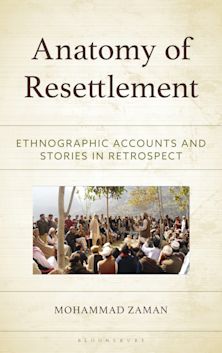- Home
- ACADEMIC
- Anthropology
- Anthropology - Other
- Cooperation in Economy and Society
Cooperation in Economy and Society
Robert C. Marshall (Anthology Editor) , James Acheson (Contributor) , Matthew Bird (Contributor) , Gracia Clark (Contributor) , Bruce Dahlin (Contributor) , Malcolm Dow (Contributor) , E Anthon Eff (Contributor) , Agustín Fuentes (Contributor) , Katrina T. Greene (Contributor) , Julie Hogeland (Contributor) , Scott R. Hutson (Contributor) , Carolyn Lesorogol (Contributor) , Daniel Mazeau (Contributor) , Kathleen Millar (Contributor) , Rahul Oka (Contributor) , Benjamin Porter (Contributor) , Ronald Rich (Contributor)
Cooperation in Economy and Society
Robert C. Marshall (Anthology Editor) , James Acheson (Contributor) , Matthew Bird (Contributor) , Gracia Clark (Contributor) , Bruce Dahlin (Contributor) , Malcolm Dow (Contributor) , E Anthon Eff (Contributor) , Agustín Fuentes (Contributor) , Katrina T. Greene (Contributor) , Julie Hogeland (Contributor) , Scott R. Hutson (Contributor) , Carolyn Lesorogol (Contributor) , Daniel Mazeau (Contributor) , Kathleen Millar (Contributor) , Rahul Oka (Contributor) , Benjamin Porter (Contributor) , Ronald Rich (Contributor)
This product is usually dispatched within 1 week
- Delivery and returns info
-
Free CA delivery on orders $40 or over
You must sign in to add this item to your wishlist. Please sign in or create an account
Description
The essays in the book analyze cases of cooperation in a wide range of ethnographic, archaeological and evolutionary settings. Cooperation is examined in situations of market exchange, local and long-distance reciprocity, hierarchical relations, common property and commons access, and cooperatives. Not all of these analyses show stable and long-term results of successful cooperation. The increasing cooperation that is so highly characteristic of our species over the long term obviously has replaced neither competition in the short term nor hierarchical structures that reduce competition in the mid term. Interactions based on strategies of cooperation, competition, and hierarchy are all found, simultaneously, in human social relations.
Table of Contents
Chapter 2 Chapter 1. Introduction
Part 3 Part II. Cooperation and Competition
Chapter 4 Chapter 2. From Reciprocity to Trade: How Cooperative Infrastructures Form the Basis of Human Socio-cultural Evolution
Chapter 5 Chapter 3. Market Integration and Pro-social Behavior: Some Evidence from the Standard Cross-Cultural Sample
Chapter 6 Chapter 4. Critique of Reciprocity: Shifts in Ayni among Andean Groups
Chapter 7 Chapter 5. Commerce and Cooperation among the Classic Maya: The Chunchucmil Case
Part 8 Part III. Cooperation and Hierarchy
Chapter 9 Chapter 6. Cooperation in Conflict: Negotiating Inequality in Midwestern U.S. Hog Contracting
Chapter 10 Chapter 7. Cooperation, Equality, and Difference
Chapter 11 Chapter 8. Cooperation, Conflict, and Communal Complexity in Marginal Levantine Social Life
Part 12 Part IV. Co-operatives
Chapter 13 Chapter 9. Cooperation in the Informal Economy: The Case of Recyclers at a Brazilian Garbage Dump
Chapter 14 Chapter 10. Is It Possible to Overcome the "Tragedy of Ubuntu?" The Journey of a Black Women's Economic Empowerment Group in South Africa
Chapter 15 Chapter 11. The Role of Social Norms in the Construction of American Agricultural Cooperatives
Part 16 Part V. Cooperation Rising
Chapter 17 Chapter 12. Creating Common Grazing Rights on Private Parcels: How New Social Norms Produce Incentives for Cooperative Land Management
Chapter 18 Chapter 13. Cooperation and the Development of Conservation Laws: The Case of the Maine Lobster Industry
Product details
| Published | Nov 16 2010 |
|---|---|
| Format | Hardback |
| Edition | 1st |
| Extent | 318 |
| ISBN | 9780759119819 |
| Imprint | AltaMira Press |
| Dimensions | 240 x 162 mm |
| Series | Society for Economic Anthropology Monograph Series |
| Publisher | Bloomsbury Publishing |
About the contributors
Reviews
-
Shall we base our notions of humanity on the limited cultural constructs and religious ideology of one time period, one political-economic system, one system of thought represented by economics? Or shall we free ourselves of these mental and ideological shackles to explore the realities beyond these assumptions? The empirical studies of ethnographic, archaeological, and even the evolutionary fossil record show why we should transcend the imprisonment of the mind that assumes that market-like relations define humanity and even all of nature. This book provides an impressive range of studies across the spectrum of anthropology that illustrate the centrality of cooperation in human relations. The various papers address ways to understand cooperation among individuals, how both hierarchic and more egalitarian organizations solve the problems of their members, the performance of cooperative institutions in difficult economic times, and the regulation of access to common property resources. The strength of the work is its focus on fine-grained empirical work rather than ideologically based assumptions. With its feet on the ground, this book does much to move economic thought toward reality.
Paul Durrenberger, Pennsylvania State University
-
This book champions research on cooperation... Although it never left us in practice, social thinkers are increasingly realizing cooperation does not belong on the sidelines, used only to help pick up the pieces where competition fails. It is starting to take its rightful place alongside competition in the center of the field. Cooperation in Economy and Society is part of this realization.
Anthropology of Work Review



































